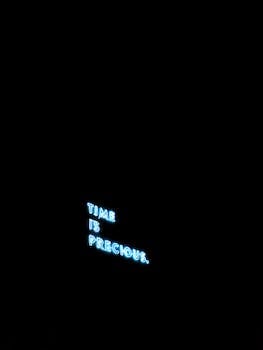

-
Table of Contents
"Embrace your power, defy the odds, defend your free will."
Introduction
Defending Free Will in a Predetermined Universe
The concept of free will has long been a subject of philosophical debate. It asserts that individuals have the ability to make choices and decisions that are not predetermined or influenced by external factors. However, the notion of a predetermined universe challenges the existence of free will, suggesting that all events and actions are predetermined by a set of causal laws. In this essay, we will explore the arguments defending free will in a predetermined universe, examining the compatibility of these seemingly contradictory concepts.
The Illusion of Free Will in a Predetermined Universe
Defending Free Will in a Predetermined Universe
The concept of free will has long been a subject of philosophical debate. It is the idea that individuals have the ability to make choices and decisions that are not predetermined or influenced by external factors. However, in a universe governed by deterministic laws, where every event is believed to have a cause and effect, the existence of free will seems to be nothing more than an illusion.
Determinism posits that every action and decision we make is a result of prior causes. From the moment we are born, our lives are shaped by a series of events and circumstances that ultimately determine our thoughts, desires, and actions. In this view, our choices are not truly our own, but rather the inevitable outcome of a chain of events that began long before we were even aware of them.
This deterministic perspective challenges the very essence of free will. If our actions are predetermined, then how can we claim to have any control over our lives? How can we be held responsible for our choices if they were simply the result of external factors beyond our control?
Despite these philosophical quandaries, many philosophers and thinkers have sought to defend the existence of free will within a deterministic universe. They argue that while our choices may be influenced by external factors, we still possess the ability to exercise agency and make decisions that are not entirely determined by these factors.
One way to defend free will in a predetermined universe is by appealing to the complexity of human behavior. While it is true that our actions are influenced by a multitude of factors, including genetics, upbringing, and social conditioning, it is also true that we possess a unique capacity for self-reflection and introspection. This ability allows us to consider various options and weigh the consequences of our actions, ultimately leading to a decision that is not solely determined by external factors.
Furthermore, defenders of free will argue that even if our choices are influenced by external factors, they are still our choices. We may be shaped by our past experiences and circumstances, but we are not entirely determined by them. We have the power to resist societal pressures, overcome our instincts, and act in ways that are contrary to our predispositions. In this sense, free will can be seen as a form of self-determination, where we have the ability to shape our own lives and make choices that align with our values and beliefs.
Another line of defense for free will in a predetermined universe is the concept of compatibilism. Compatibilists argue that determinism and free will are not mutually exclusive. They contend that even if our actions are determined by prior causes, we can still be considered free as long as we are able to act in accordance with our desires and intentions. In other words, as long as we are not coerced or forced to act against our will, we can still be considered free agents.
In conclusion, while the concept of free will may seem incompatible with a universe governed by deterministic laws, there are compelling arguments that seek to defend its existence. By emphasizing the complexity of human behavior, the capacity for self-reflection, and the concept of compatibilism, philosophers and thinkers have sought to reconcile the illusion of free will with the reality of a predetermined universe. Ultimately, the debate over free will and determinism continues to challenge our understanding of human agency and the nature of our choices.
The Role of Consciousness in Defending Free Will

Defending Free Will in a Predetermined Universe
The Role of Consciousness in Defending Free Will
In a world governed by cause and effect, where every event seems to be predetermined by the laws of physics, the concept of free will often comes under scrutiny. How can we have the power to make choices if everything that happens is already determined? This philosophical dilemma has puzzled thinkers for centuries, but some argue that the key to defending free will lies in the role of consciousness.
Consciousness, often described as our subjective awareness of the world and ourselves, is a complex phenomenon that sets humans apart from other beings. It is the seat of our thoughts, emotions, and intentions, and it is through consciousness that we experience the world and make decisions. While some argue that consciousness is merely an illusion, others believe that it plays a crucial role in the exercise of free will.
One way to understand the role of consciousness in defending free will is by examining the concept of determinism. Determinism posits that every event, including human actions, is caused by preceding events and the laws of nature. According to this view, if we could know all the relevant factors influencing a person's decision, we could predict their choice with certainty. However, proponents of free will argue that consciousness introduces an element of unpredictability into the equation.
Consciousness allows us to reflect on our thoughts and desires, to consider different options, and to weigh the consequences of our actions. It is through this process of introspection that we can exercise our free will. While our choices may be influenced by external factors and internal predispositions, consciousness grants us the ability to deliberate and make decisions that are not solely determined by these factors.
Moreover, consciousness enables us to override our immediate impulses and act in accordance with our long-term goals and values. It provides us with the capacity to resist temptation, to exercise self-control, and to act in ways that align with our moral principles. This ability to act against our immediate inclinations is a hallmark of free will and is made possible by our conscious awareness.
Furthermore, consciousness allows us to learn from our experiences and adapt our behavior accordingly. Through introspection, we can evaluate the outcomes of our actions and make adjustments for the future. This process of self-reflection and learning is essential for the development of our moral character and the exercise of free will.
Critics of free will often argue that consciousness is merely a byproduct of brain activity and does not have any causal power. They contend that our decisions are ultimately determined by neural processes and that consciousness is just along for the ride. However, this reductionist view fails to account for the unique properties of consciousness and its role in shaping our actions.
In conclusion, while the concept of free will may seem incompatible with a predetermined universe, the role of consciousness provides a compelling defense. Consciousness grants us the ability to deliberate, reflect, and make choices that are not solely determined by external and internal factors. It allows us to act in accordance with our long-term goals and values, exercise self-control, and learn from our experiences. By recognizing the significance of consciousness, we can embrace the idea that free will can coexist with a world governed by cause and effect.
The Ethical Implications of Free Will in a Predetermined Universe
Defending Free Will in a Predetermined Universe
The concept of free will has long been a subject of philosophical debate. It is the idea that individuals have the ability to make choices and decisions that are not determined by external factors. However, in a universe that is believed to be predetermined, where every event is the result of a chain of cause and effect, the existence of free will becomes questionable. This raises ethical implications that need to be explored.
One argument against free will in a predetermined universe is the idea that our actions are simply the result of prior causes. According to this determinist perspective, every decision we make is influenced by factors beyond our control, such as genetics, upbringing, and societal influences. In this view, our choices are not truly free, but rather predetermined by these external forces.
However, defenders of free will argue that even in a predetermined universe, we still have the ability to make choices. They contend that while our actions may be influenced by external factors, we still have the power to exercise our own agency and make decisions that are not solely determined by these influences. In other words, even if our choices are influenced by external factors, we are still responsible for the decisions we make.
One way to defend free will in a predetermined universe is to consider the role of consciousness. Consciousness is the awareness of our own thoughts, feelings, and actions. It is argued that consciousness allows us to reflect on our choices and make decisions based on our own values and beliefs, rather than being solely determined by external factors. In this view, consciousness provides a space for free will to exist, even in a universe that is predetermined.
Another defense of free will in a predetermined universe is the idea that our choices have an impact on the course of events. While it may be true that every event is the result of a chain of cause and effect, our choices can still have a significant influence on the outcome of these events. For example, imagine a person who is faced with a moral dilemma. Even if their decision is influenced by external factors, their choice can still have a profound impact on the lives of others. In this way, our choices matter and have ethical implications, regardless of whether the universe is predetermined or not.
Furthermore, defenders of free will argue that the belief in free will is essential for moral responsibility. If we do not have the ability to make choices, then it becomes difficult to hold individuals accountable for their actions. Without free will, the concept of moral responsibility loses its meaning. In a predetermined universe, the belief in free will allows us to hold individuals accountable for their choices and actions, and to assign praise or blame accordingly.
In conclusion, the ethical implications of free will in a predetermined universe are complex and multifaceted. While determinists argue that our choices are simply the result of prior causes, defenders of free will contend that even in a predetermined universe, we still have the ability to make choices and decisions that are not solely determined by external factors. They argue that consciousness, the impact of our choices, and the importance of moral responsibility all support the existence of free will. Ultimately, the debate over free will in a predetermined universe raises important questions about the nature of human agency and the role of ethics in our lives.
Q&A
1. Can free will exist in a predetermined universe?
Yes, some argue that free will can coexist with a predetermined universe, suggesting that individuals still have the ability to make choices and decisions, even if the outcome is predetermined.
2. What are some arguments defending free will in a predetermined universe?
One argument is that even if the universe is predetermined, individuals still experience the subjective feeling of making choices, which supports the existence of free will. Additionally, proponents argue that the complexity of human decision-making cannot be reduced to deterministic processes alone.
3. How do defenders of free will respond to determinism?
Defenders of free will often argue that determinism does not negate the existence of free will, as it only describes the predictability of events. They contend that even in a predetermined universe, individuals can still exercise their agency and make choices based on their desires, beliefs, and values.
Conclusion
In conclusion, defending free will in a predetermined universe is a complex and philosophical debate. While some argue that determinism undermines the concept of free will, others propose that free will can still exist within a predetermined framework. The discussion revolves around the compatibility of determinism and free will, and whether our choices are truly autonomous or merely predetermined outcomes. Ultimately, the question of defending free will in a predetermined universe remains open-ended, with various perspectives and interpretations.












